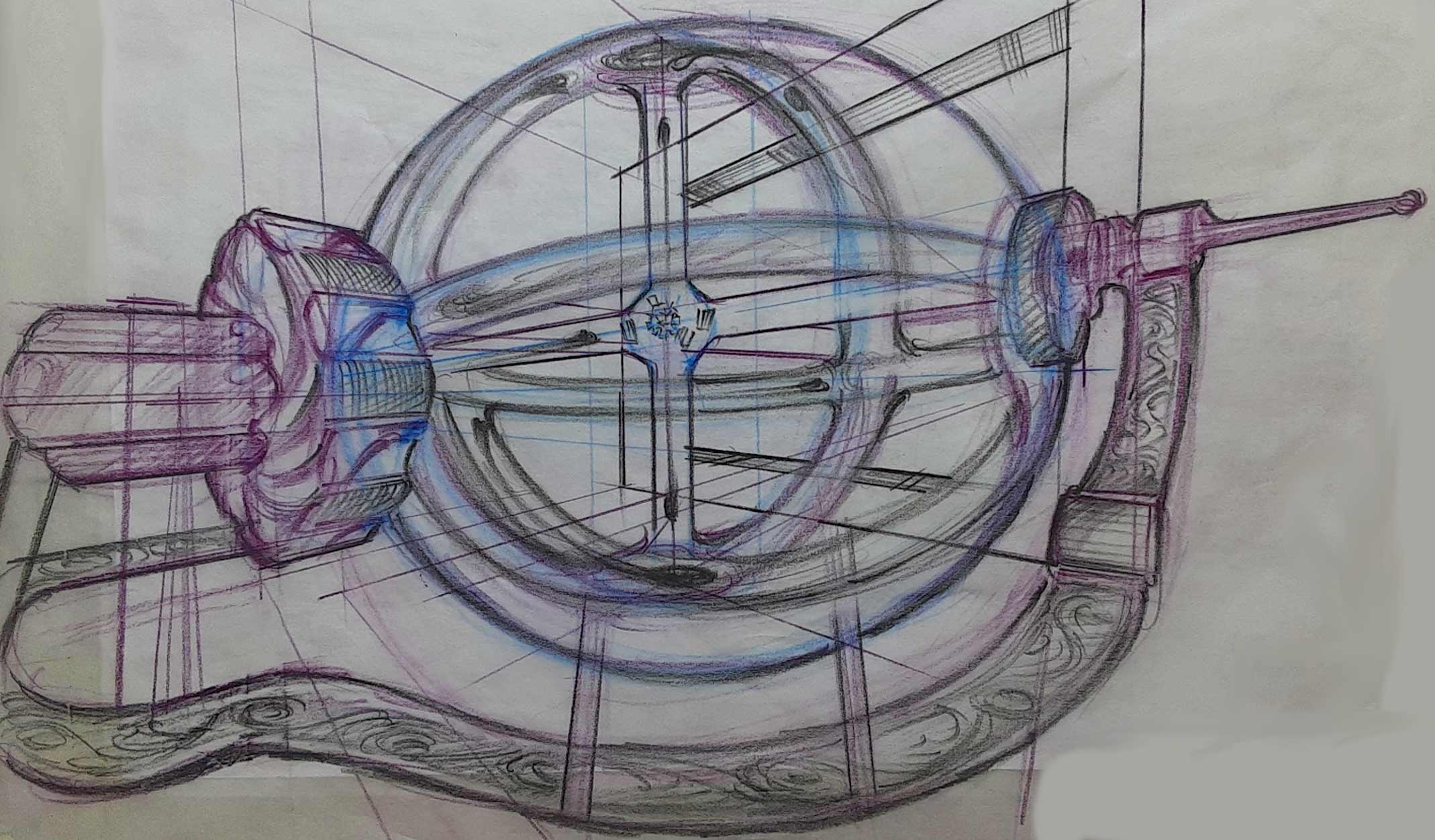
Cutting edge quantum physics and Victorian era science collide in the emerging field of quantum thermodynamics in a new research hub hosted by the University of Maryland. (Credit: Bruce Rosenbaum and Jim Su)
The University of Maryland is hosting a new $2 million project aimed at making the state of Maryland a central hub for research in the emerging field of quantum thermodynamics, which studies the rules that govern how energy flows in quantum systems.
The Maryland Quantum-Thermodynamics Hub, supported by a grant from the Templeton Foundation, will bring together researchers from several universities to galvanize a field that is central to understanding our universe and to developing robust quantum technologies.
The hub will be physically and administratively housed within the Institute for Physical Science and Technology at UMD.
Leading the project at UMD are Christopher Jarzynski, a Distinguished University Professor with appointments in chemistry and biochemistry and in physics, and JQI Affiliate Nicole Yunger Halpern, who is also a UMD adjunct assistant professor of physics.
“We’re delighted at the support that UMD institutions, including IPST, have demonstrated for establishing this hub and for quantum thermodynamics in general,” says Yunger Halpern, who is also a fellow of the Joint Center for Quantum Information and Computer Science (QuICS) and a scientist at the National Institute of Standards and Technology. “We look forward to building a North American lodestone for quantum thermodynamics, inspired by our international peers.”
Quantum thermodynamics has revealed that in the quantum world, you don’t need to just think about the movement of energy and particles—as in traditional thermodynamics—but also about the movement of information in uniquely quantum ways. The thermodynamic rules of quantum systems require significant additional research before physicists can understand them as well as they do the established laws of thermodynamics that govern heat flow in things like refrigerators, steam engines and rocket thrusters.
The Maryland hub team is not scrapping traditional thermodynamics completely, however. Instead, it is combining physicists’ established understanding with the modern tools of quantum physics and information processing to develop deeper insights.
The scientists involved in the Maryland Quantum-Thermodynamics Hub say they’re not only interested in a richer understanding of quantum physics and how it may be used in technology, but also how the tiny world of quantum physics leads to the flow of time and the laws of classical physics we see in everyday life.
In addition to cutting-edge research, the hub team also plans to organize symposia, seminars, an international conference, a visitors program and a science-fiction short-story contest.
In addition to Jarzynski and Yunger Halpern, the senior personnel involved are University of Maryland, Baltimore County Associate Professor of Physics Sebastian Deffner; UMD Assistant Research Scientist Luis Pedro García-Pintos, who is also a member of JQI and QuICS; University College Dublin Assistant Professor Steve Campbell; University of Southern California Quantum Information Scientist Amir Kalev, who was formerly a Hartree postdoctoral fellow at QuICS; and Arizona State University Assistant Professor Kanu Sinha, who received her Ph.D. in physics at UMD.
Writing about the establishment of the hub, Yunger Halpern says that the team is planning international collaborations with researchers at additional institutions.
Story by Bailey Bedford
Related Items from the Web